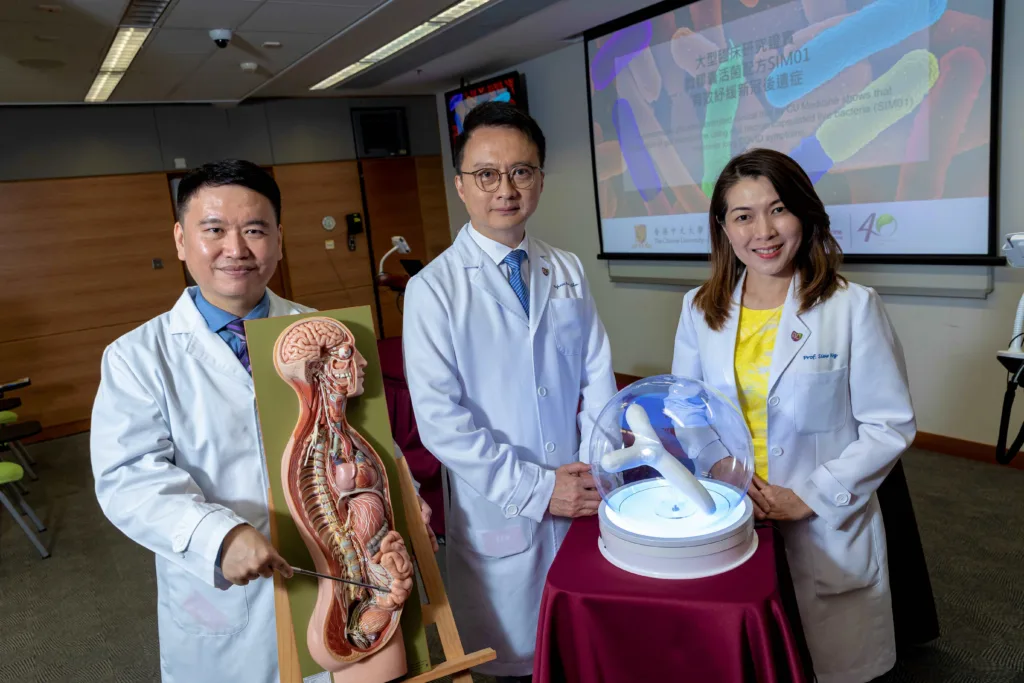Microbiome Modulation: Cultivating Gut Health for Optimal Aging
The human gut is the most visible example of the body’s intricate ecosystem. The gut microbiome is a varied community of microorganisms that are found throughout the complex network of our digestive system and are essential to our general health. This piece delves into the intriguing realm of microbiome modulation, examining the ways in which interventions such as fecal microbiota transplantation, probiotics, and prebiotics can improve immune function, improve nutrient absorption, and support the goal of healthy aging.

Knowing the Microbiome of the Gut:
Before we explore the methods of microbiome modulation, let’s take a moment to understand what the gut microbiome is and why it matters. The gut consists of trillions of microorganisms, including bacteria, viruses, fungi, and other microbes, all coexisting in a delicate balance. This dynamic ecosystem plays a crucial role in digestion, metabolism, and the development of the immune system.
Microbiome Modulation Techniques:
Probiotics:
Probiotics are live microorganisms that confer health benefits when consumed in adequate amounts. Found in fermented foods like yogurt, kefir, and sauerkraut, as well as in supplement form, probiotics introduce beneficial bacteria into the gut. These friendly bacteria help maintain a balanced microorganisms, promoting digestive health and bolstering the immune system.
Prebiotics:
Prebiotics are substances that nourish and stimulate the growth of beneficial microorganisms in the gut. Foods rich in prebiotics include garlic, onions, bananas, and asparagus. By providing a favorable environment for good bacteria, prebiotics contribute to a flourishing gut microorganisms and support overall well-being.
Fecal Microbiota Transplantation (FMT):
In cases where the natural balance of the gut microorganism is disrupted, fecal microbiota transplantation can be a powerful intervention. This procedure involves transferring fecal matter from a healthy donor to a recipient, effectively replenishing the recipient’s gut with a diverse and healthy microbial community. FMT has shown remarkable success in treating conditions such as recurrent Clostridium difficile infection.
The Impact on Health:
The benefits of cultivating a balanced gut microbiome extend beyond improved digestion. Research indicates that a healthy microbiome is linked to enhanced immune function, better nutrient absorption, and even healthy aging. A well-balanced microbiome helps regulate inflammation, reduce the risk of chronic diseases, and may contribute to cognitive health.
Promoting Optimal Aging:
As we age, maintaining a healthy gut microbiome becomes increasingly crucial. Aging is associated with changes in the composition and diversity of the microbiome, which can impact various aspects of health. By incorporating microbiome modulation techniques into our lifestyles, we can potentially mitigate age-related declines in immune function, metabolic efficiency, and overall well-being.
The cultivation of a balanced gut microbiome becomes an important strategy in the pursuit of optimal aging. Probiotics, prebiotics, and fecal microbiota transplantation are efficient means of influencing the microbiome, which supports immune function, aids in digestion, and enhances general health. Using microbiome modulation to your advantage is a promising strategy for healthy aging as our understanding of the complex relationship between gut microbiome and health grows.
References:
Victor DW, 3rd, Quigley EM: The Microbiome and the Liver: The Basics. Semin Liver Dis. 2016;36(4):299–305. 10.1055/s-0036-1593879 [PubMed] [CrossRef] [Google Scholar]
Dominguez-Bello MG, Godoy-Vitorino F, Knight R, et al.: Role of the microbiome in human development. Gut. 2019;68(6):1108–14. 10.1136/gutjnl-2018-317503 [PMC free article] [PubMed] [CrossRef] [Google Scholar]
Claesson MJ, Clooney AG, O’Toole PW: A clinician’s guide to microbiome analysis. Nat Rev Gastroenterol Hepatol. 2017;14(10):585–95. 10.1038/nrgastro.2017.97 [PubMed] [CrossRef] [Google Scholar]
Camacho DM, Collins KM, Powers RK, et al.: Next-Generation Machine Learning for Biological Networks. Cell. 2018;173(7):1581–92. 10.1016/j.cell.2018.05.015 [PubMed] [CrossRef] [Google Scholar] F1000 Recommendation
Mallick H, Ma S, Franzosa EA, et al.: Experimental design and quantitative analysis of microbial community multiomics. Genome Biol. 2017;18(1):228. 10.1186/s13059-017-1359-z [PMC free article] [PubMed] [CrossRef] [Google Scholar]
